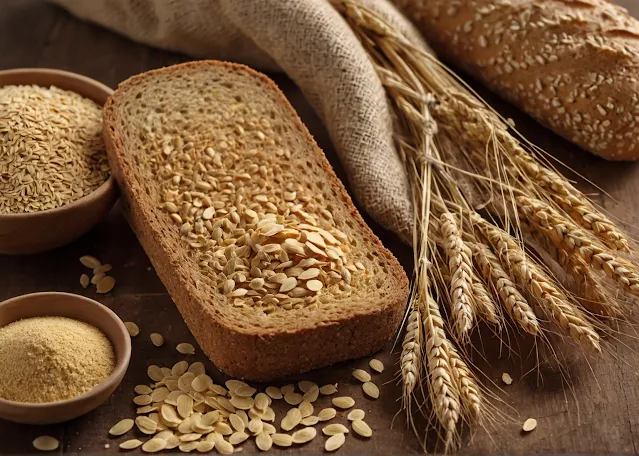In the assortment of the past decade, the amount of interest in the gluten-free diet has risen tremendously. Gluten, a protein inherent in wheat, barley, and rye, being the ‘haraam’ of Celiac disease, a strict withdrawal is exercised by such patients. While eating without gluten is not limited to celiac disease, though, it, however, does go further for those with gluten disease. This essay is concerned with the causes of the fast-increasing number of people who choose to eat gluten-free diets; these reasons may be poor tolerance to gluten, believing that gluten-free diet is better for health and last but not least, marketing and the media.
1. Celiac Disease and Gluten Sensitivity:
Celiac disease is a self-destructive autoimmune disorder in which immunity systems target gluten of the small intestine, causing its damage. Gluten-free diet is not only invaluable for celiac patients who want to control the symptoms and avoid future complications but also for those on the path to healthier living. This is because the most people who have been diagnosed with this gluten-free diet, do not have celiac disease at all. They could have a non-celiac gluten sensitivity, and they might have a digestive discomfort or any other symptom sering after the gluten consumption. The boosted diagnosis and recognition of such conditions have proved to contribute to the rise of the so-called gluten-free diets.
2. Perceived Health Benefits:
A considerable number of people have managed to get accustomed to gluten-free diets and their prevailing belief on health benefits connected to this diet. They assume that if you get rid of gluten, you will not only lose some weight, but also your energy will increase and digestion will be better and by-product of that your general sense of well-being will also improve. Although science is still debating whether people refraining from gluten experience extra benefits other than less digestive stress, some might in fact gain a health benefit due to simultaneous increase in consumption of fresh fruit, vegetables, and whole grains
3. Influence of Marketing and Media:
Marketing and media sectors have influenced the concept of gluten free diet in a world of change. While the food industry has taken a step forward by making a vast selection of gluten-free products the market now offers, such as bread, pasta, and snacks and desserts. Such products frequently are identified as being healthier, which is particularly appealing to customers who are concerned about their own health. Also, celebrities and influencers promote gluten free food plans call others, acting as trendsetters in food habits on social media platforms. Through the marketing and the media, it is made available to the people, that there is a perception which outlines that gluten related diets are not only crucial and beneficial for the people with celiac disease or gluten sensitivity, but for the entire human population as well.
4. Availability and Accessibility of Gluten-Free Products:
Today, the gluten consumption is abundant for many people, due to the fact that the availability and accessibility of gluten-free products have dramatically increased in recent years. The food market now has a multitude of variants of gluten-free food products and restaurants offer a wide range of foods for gluten restriction diets. This eases following of such a diet. The availability of gluten-free products has become more widespread over time, which has consequently made it better for a lot more people, as they consider it an accessible and easy-to-adopt dietary pattern.
5. Dietary Fads and Trends:
The gluten-free diets are found to be integrated on to dietary hypes as well as eating trends. Folks are often led by the searchlight of highly advertised diets where without deeper research of their consequences and their differences with other peoples’ health status, get on the bandwagon. For the others who are purely in it for the sake of fashion and the gluten-free dictates from the society, they can only get themselves fooled with this diet.
Since gluten-free diets turned into massive trend many factors may hold responsible: celiac disease and gluten sensitivity awareness rise, health benefits attributed to the gluten absence, the marketing influence and media, food products availability and last, but not least, people dietary fads and trends. Only if (and) their diagnosis includes celiac disease or gluten intolerance, a gluten-free diet is something necessary for individuals. For the rest of the population, it most likely not includes good indications related to health. It is important that individuals who are going to follow the gluten-free diet should take an advice of professional healthcare providers and therefore ensure the proper meeting of their nutritional requirements, the balanced diet and the diet with diversity.

